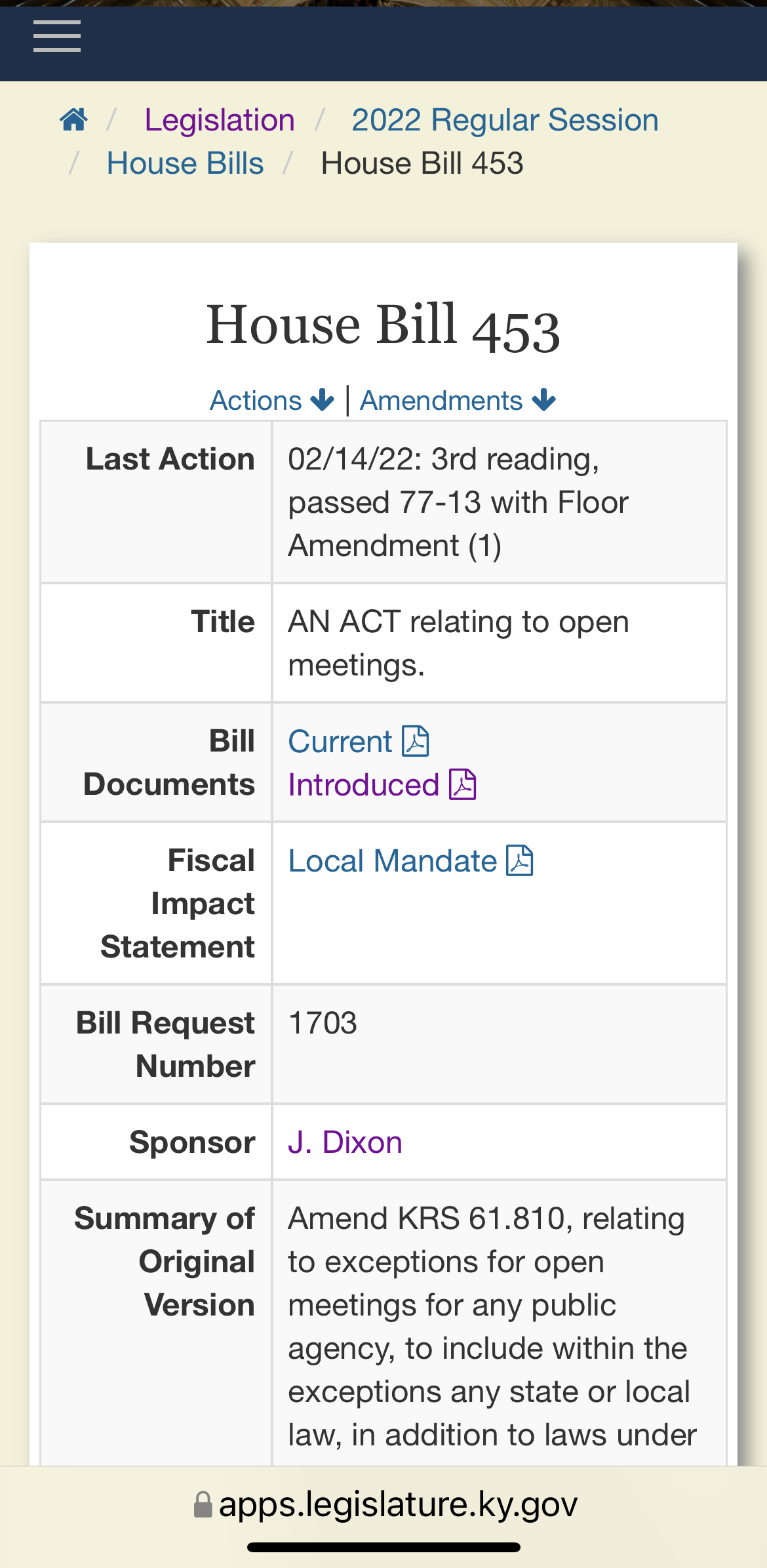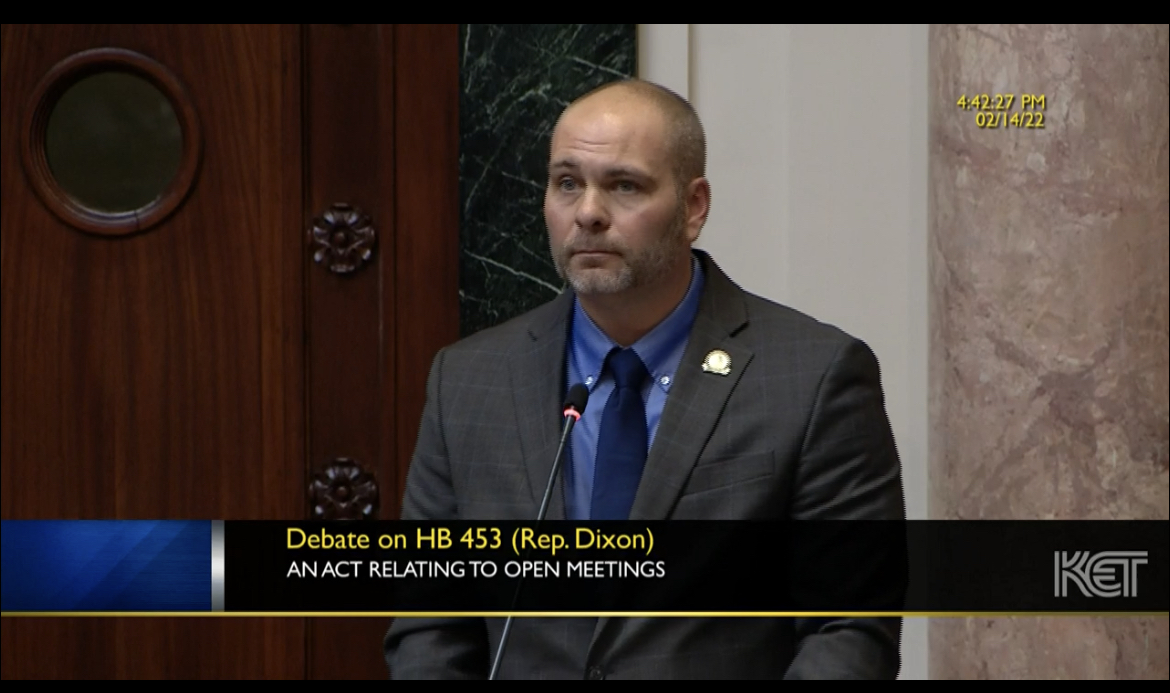

The Kentucky Open Government Coalition wishes to clarify that it continues to oppose HB 453, “an act amending the open meetings law,” which passed out of the House of Representatives today by a vote of 77-13.
https://apps.legislature.ky.gov/record/22RS/hb453.html
The Coalition endorses the “hybrid” public meeting model which requires both in person meetings and live streamed video teleconferenced meetings (like those we have become accustomed to during the public health crisis).
Statements to the contrary during the February 14 House floor debate of HB 453 were based on a miscommunication. Neither HB 453 as originally filed, nor as it was amended by House Floor Amendment 1, address the Coalition’s concern that codification of public agency authority to conduct video teleconferenced meetings, as a substitute for face to face meetings, may erect electronic barriers to the public's ability to hold elected and appointed officials accountable at in person meetings. Although any limitation on potential abuse of the law, if enacted, is welcomed, House Floor Amendment 1 to HB 453 did nothing to change our position
The Coalition emailed a Statement of Opposition to Speaker of the House David Osborne and the members of the House of Representatives earlier today. We communicated our concern that HB 453:
1. Threatens the preference for in person meetings that has existed in the Open Meetings Act since its enactment. It abridges the public’s right to make its collective “voice“ heard in face to face interaction with its elected and appointed officials.
2. Ignores the “hybrid” public meeting statutory option which requires both in person meetings and live streamed (video teleconferenced) meetings. This option is being considered in other states.
3. Creates the potential for abuse by omitting statutory “guardrails” aimed at maximizing public oversight, including:
● mandatory roll call votes with microphones on;
● electronic distribution of meeting materials to be discussed at the same time the materials are distributed to agency members;
● a dedicated phone line for citizens to report disruption of the audio or video signal as the meeting proceeds;
● steps to ensure any visual aids presented to agency members are equally visible to the public; and
● a fixed minimum number of in person meetings each year.
The Coalition focused its objections on the threat to in-person meetings, but we also question the creation of two new open meetings exceptions in HB 453 — one embedded in the open meetings law for local procurement “selection“ committee meetings conducted under state and local laws and one embedded in Chapter 83A, relating to cities operating under a city manager form of government and authorizing closed session city manager evaluations.
In the past, new open meetings exceptions have been carefully vetted. No rationale supporting the new exceptions was cited in today’s debate. The new exceptions to the open meetings law were approved by a vote of 77-13 at the conclusion of the debate.
No one can predict with certainty whether public official will abuse their right to avoid their constituents by defaulting to video teleconferenced meetings or whether they will engage in conduct that violates their existing duties under the open meetings laws. What is certain is that HB 453 creates an easy legal mechanism for doing so.
The Kentucky Open Government Coalition remains opposed.


